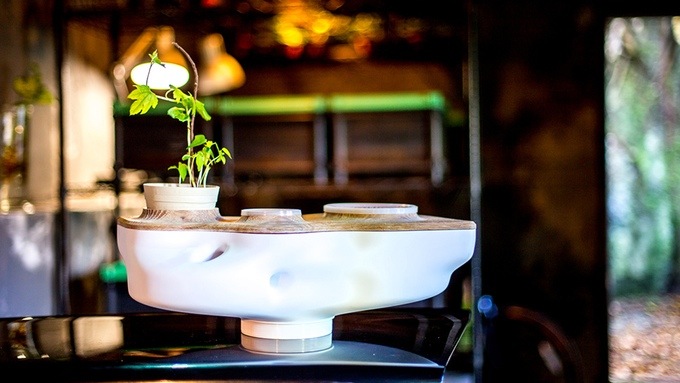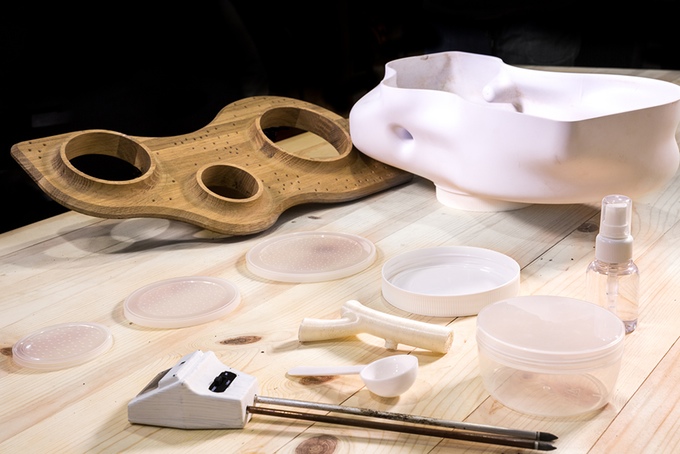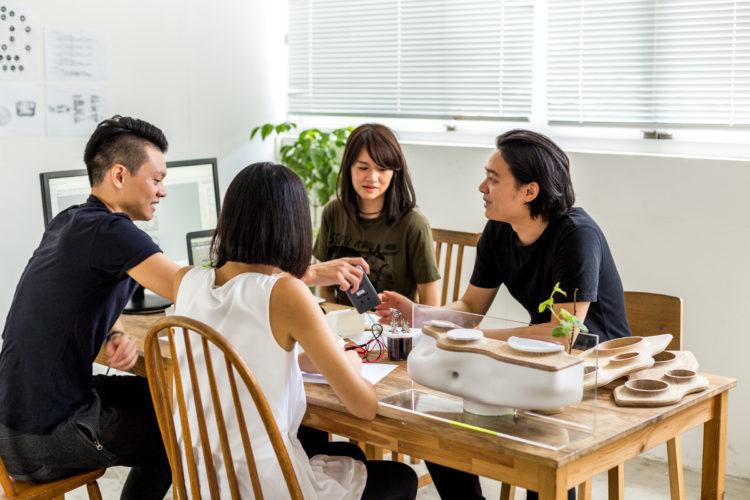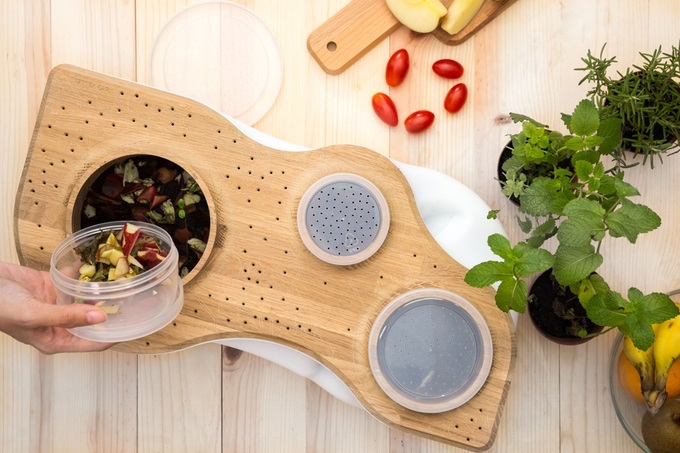
You can grow plants in it too! Photo credit: Bionicraft.
Imagine you’re cooking a delicious meal, one with all kinds of fresh vegetables and fruits. You go to chop everything up and find you have some leftovers – maybe a portion of your onion has turned black and you have plenty of carrot tops left over. Your apple core lies unused on your kitchen counter.
Food waste ends up sealed away in the ground, encased in something that won’t break down for several years.
So what do you do? You probably throw it away into a plastic bag, cloth bag, or piece of newspaper. The garbage is collected from your house. Most of the time, it ends up sealed away in the ground, encased in something that won’t break down for several years. It’s a shame because your produce bits can break down in a matter of weeks if they’re left lying in soil, giving nutrients back to the dirt.
But what are you supposed to do – not throw it away and leave an appetizing pile of produce bits lying around outside for your neighbors to scoff at? Taiwan-based startup Bionicraft, founded by Brooklyn Chao, thinks the solution can be a lot simpler, using a method that you probably learned about as a child in your school’s science class.
Bionicraft’s product is called Biovessel, which they advertise on their Kickstarter page as “an ecosystem powered by food waste.” The actual product looks like an artful, vaguely rectangular piece of pottery, about the size and width of an adult’s chest. It has three openings in the top for you to pour your leftover fruit and vegetable tidbits, water, and the secret ingredient: earthworms.
Once inside their own Biovessel ecosystem, the earthworms do what they do best – decompose the leftover food, leaving behind soil with added nutrients. That soil can then be used for plants, poured onto other soil, or serve as the earthworms’ habitat for your next batch of food waste.
The Kickstarter page notes that the earthworms help the smell of the process. Thanks to them, it will only smell like wet soil, and not rotting food. Biovessel has raised US$20,331 of its US$30,000 goal from 141 backers. Kickstarter has deemed it one of its “Projects We Love.” Biovessel’s campaign ends on October 29, leaving 50 days left for it to finish that last third of its goal.
Harnessing science

Brooklyn Chao, Bionicraft’s founder.
Though Biovessel would look at home next to potted plants or on a windowsill, Bionicraft claims that the at-home composting system was designed after over 20 months of research to most suit the earthworms. The holes in the top, for example, were put there to provide oxygen for the worms, but the company also created them with the golden ratio in mind.
It’s found all over in nature. A popular example is the sunflower, which follows this ratio to maximize its number of seeds and the number of nutrients that each seed receives. (Play with this site for a visual explanation of the golden ratio.)
Inspired by the golden ratio and the sunflower, Biovessel’s holes are also made to mimic sunflower seed spirals. Brooklyn says that this is meant to maximize airflow to the earthworms.

A basic Biovessel kit, available for order now from its Kickstarter page.
Besides fruit and vegetables, users can feed leafy greens, grass and garden clippings, tea bags, brown paper, and newspaper to the worms. The system doesn’t work with citrus, salts, processed foods, oils and fats, grains, or meat. Bionicraft recommends a mixture of humus and sawdust soil for Biovessel.
If funded, the page sets the estimated delivery date at February 2017. Biovessel’s retail price is about US$200.
Nature, not machines

Bionicraft’s team. Photo credit: Bionicraft.
Brooklyn was working as an architect in Taipei when he found himself inspired by the idea of turning trash into something useful. He founded Bionicraft in July last year. The Biovessel prototype was ready by October. Four prototypes later, it launched on Kickstarter this month.
“We waste a lot of our food every single day, but that’s the reason why I started off Bionicraft,” he tells Tech in Asia. “We believe that biology or nature itself – if you learn from nature, you can solve the problem.”
We’re not trying to design or build a machine. The problem is caused by the [machines themselves].
In 2013, the British Institution of Mechanical Engineers found that an estimated 30 to 50 percent of all food – 1.2 to 2 billion metric tons – produced remains uneaten. This could include the orange tree on the street corner that doesn’t generally get harvested, but it also includes the amount of food that’s thrown away or spoils after purchase. The US Environmental Protection Agency reports 21 percent of solid waste in US landfills is food waste.
“We’re not trying to design or build a machine,” Brooklyn explains. “The problem is caused by the [machines themselves]. We want to design something only using biology or nature.”

Photo credit: Bionicraft.
The idea of a compost machine is nothing new, and Brooklyn admits this, pointing out the availability of things like DIY worm bins. However, many compost piles are kept outside in backyards that not all people have. He also adds that DIY aeration can result in a stinky compost pile. Brooklyn says Biovessel is ideal for those who live in apartments or small spaces and helps bring nature into the home.
Bionicraft is powered by a team of five. They are biologists, designers, and landscape architects. Brooklyn hopes the product can be the first of many that promote conservation via concepts that already exist in nature. The company is also working on a Biovessel for industrial institutions and Bioeat, which will generate electric power from food waste.
“If you learn from nature, you can solve the problem,” says Brooklyn.
This post The beautiful kit that turns food waste into fertilizer, and is perfect for urban homes appeared first on Tech in Asia.
from Tech in Asia https://www.techinasia.com/taiwan-startup-biovessel-kickstarter
via IFTTT
No comments:
Post a Comment